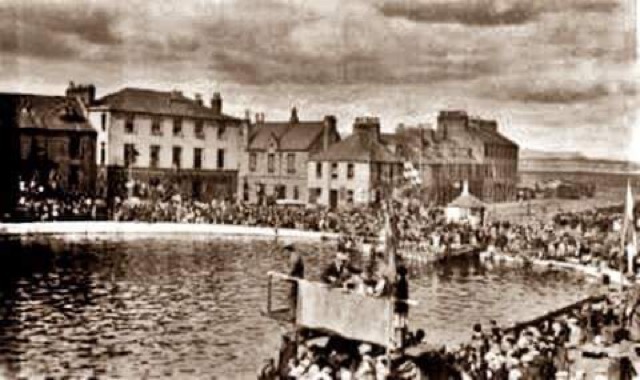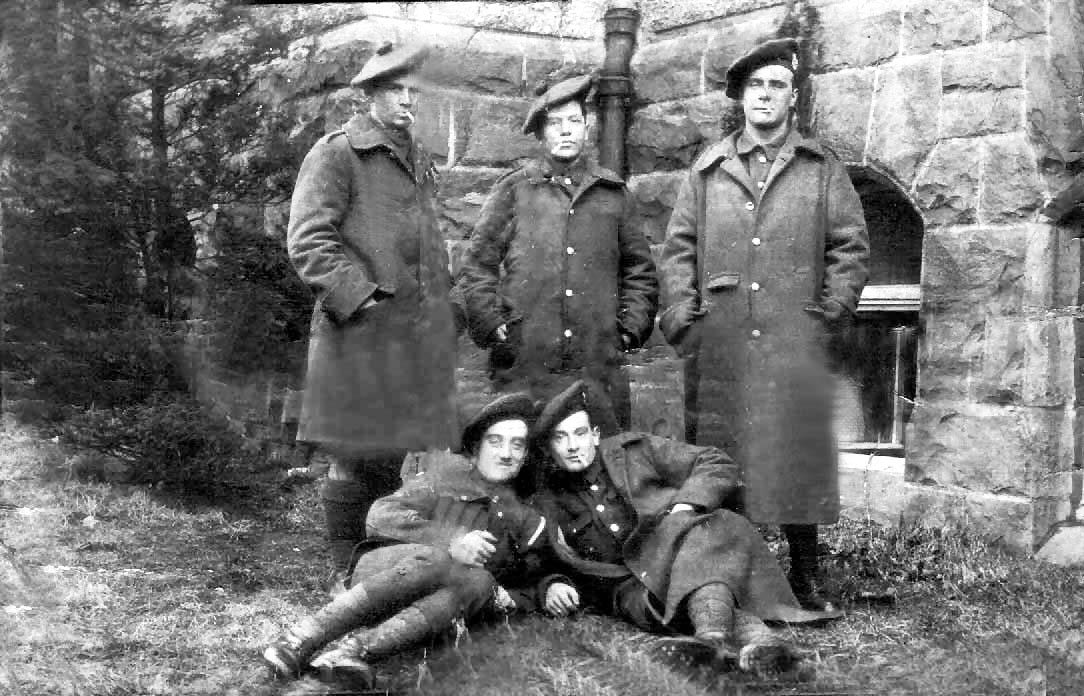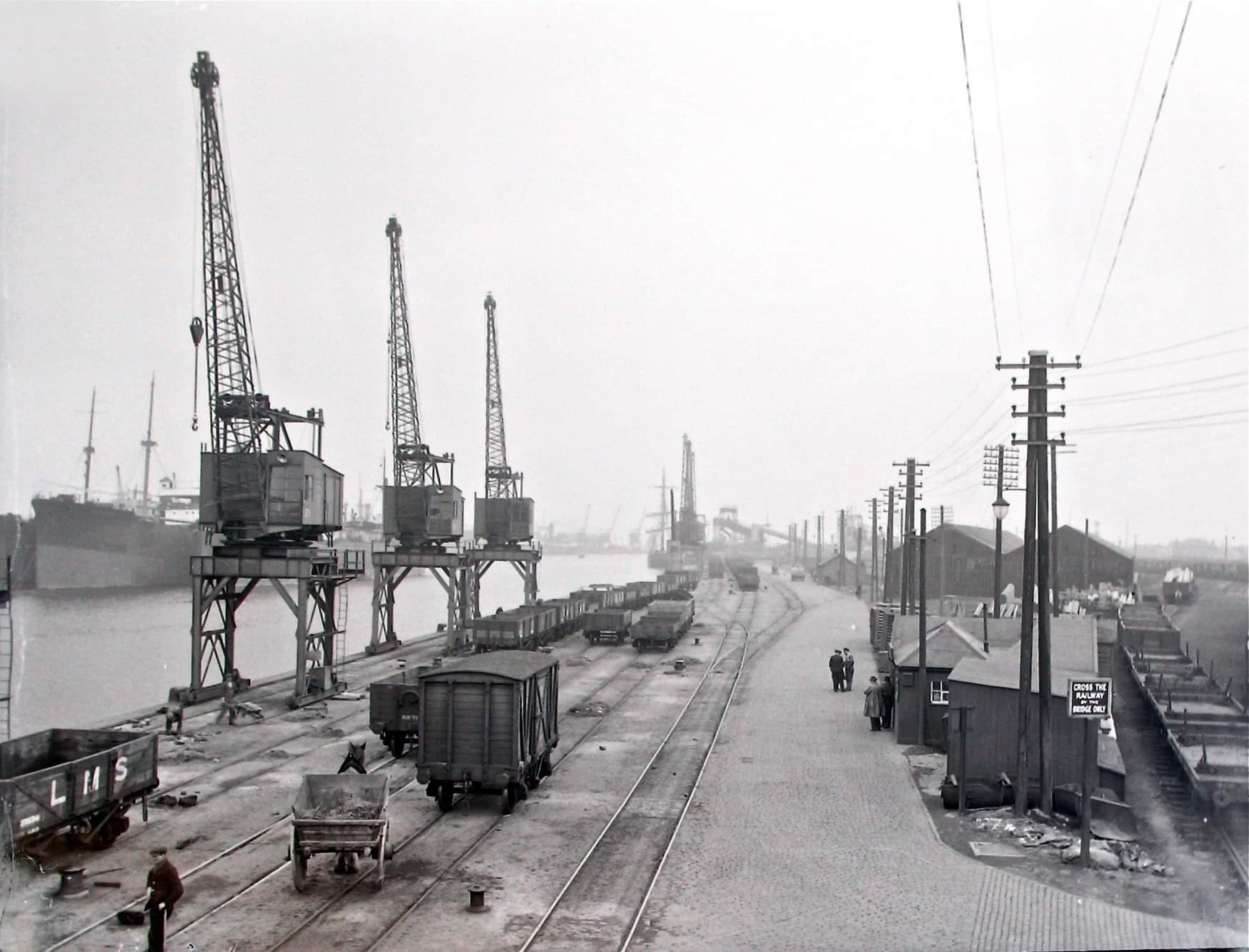Great Place volunteer Jim Pringle examines some of the myths about World War One, and discusses the effect of the war on Grangemouth.
War Fever?
On Tuesday 4 August 1914 Britain declared war on the German empire. So, was there war fever? Was there unrestrained enthusiasm? Did crowds cheer and were flags waved? Did a generation of young Grangemouth men go off to be slaughtered in the mud and blood of Flanders? Like all myths the reality is more nuanced.
According to the Falkirk Herald there was excitement in the town and groups hung around discussing the latest developments, but the mood was sober as people came to terms with what the war would mean (8 August 1914).
The first local Territorial soldiers and Reservists left from the railway station on Thursday 6 August. Talbot Street, Lumley Street, the Station Brae and Earls Road were crowded. There was cheering, excitement, and handkerchiefs were waved. But it was also reported that:
“there were to be seen people who did not feel like cheering as they saw their loved ones march off.”
fields['text']) echo $section->fields['text']; ?>
There was “many a sad heart as mothers, sweethearts and wives reflected on the grim task that lay ahead” (Falkirk Herald 8 August 1914).
By the following week there was “acute anxiety” in the town and “not the slightest evidence of what is known as war fever” and 1,000 dock labourers had been thrown out of work because trade was at a standstill (Falkirk Herald 12 August 1914).


No Gala
Grangemouth Town Council felt sufficiently moved to postpone the swimming gala – planned for Saturday 15 August at the canal basin. The swimming gala was a big event in the local calendar. It was postponed in 1914 and 1915 but it resumed in 1916, 1917 and 1918. At the 1917 gala, 3000 people were said to have gathered around the canal basin to watch races and demonstrations of swimming. Proceeds were used to help pay for the war memorial.
The decision to postpone the event reflects the uncertain and sober mood rather than fear of any imminent German invasion. One historian has commented this was more a “war of acceptance” than a “war of enthusiasm” (Philpott p.101). The popular feeling was that the quarrel was not of Britain`s making but, now that it had begun, it would be fought, as the Falkirk Herald said, ‘in no half-hearted fashion’ (5 August 1914).
The Falkirk Herald was remarkably accurate in its assessment of affairs. The 5 August 1914 edition warned that it was impossible to look forward without serious anxiety and that Britain faced dire consequences. People should not underestimate the magnitude of what was to come. Already, the conflict was being referred to as a “Great War.” An exceptional event.
The Cost of the War
And what of the cost? It was of course catastrophic but historians such as Jay Winter, William Philpott and others have shown that the belief that a generation of men was wiped out is a myth (Winter 2005 p.168).
The 1911 census recorded Grangemouth’s population as 10,219. The Roll of Honour compiled after the war states that 1,655 people volunteered or were conscripted, and that 281 died on active service: a death rate of about 17%. Put another way, less than one in six was killed. Terrible, but most men did return.
Of course, these bare statistics do not tell of the wounded flesh and souls of those who came home to Grangemouth, or the impact on friends and family. Jay Winter has pointed out that the psychological damage experienced by returning men and women has been underestimated by historians. Official figures reported that 2% of veterans suffered from so-called “shell shock” (Post Traumatic Stress Disorder). Winter estimates the figure is actually between 30% and 40%. He has called these survivors “a silent army of damaged people” (Winter 2019). When we look at the names on the cenotaph, we are only seeing the tip of the iceberg.
It did depend very much on circumstances and luck, but it was not exceptional for men who had joined up in the early months of the war to survive it and to return to civilian life. Amongst those mobilised in the first days of August were Forth Rangers football players Croy (a full back) and Leckie (a forward). The Falkirk Herald’s reporter jauntily hoped that “the former will defend his country as he is accustomed to his goal and that on the field of battle the latter’s aim when shooting will be as deadly as it is on the football field” (8 August 1914). There are no Croys or Leckies on our cenotaph.
By Jim Pringle, Great Place volunteer 2020.

